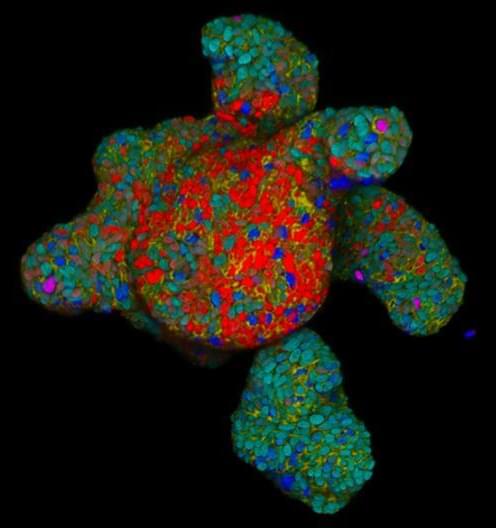There are rare cells in the gut called enteroendocrine cells (EECs) that could be manipulated in a variety of ways to detect or treat disease.
The trillions of microbes in our gastrointestinal tract, known as the gut microbiome, are crucial to the body; the gut microbiome aids in digestion, nutrient absorption, and influences our health in different ways. But the body also has to be protected from all of those microbes, which are kept behind a tight barrier. But if the intestinal barrier is dysfunctional, or leaky, serious problems can arise.
There are cells in the gut called enteroendocrine cells (EECs) that can generate hormones, which may have a variety of effects on the body. EECs release hormones in response to cues like food intake and stomach stretching. The hormones can then influence physiological processes related to digestion or appetite. Scientists have now found receptors on EECs that control hormone release. It may one day be possible to alter these receptors to treat disease. The research has been reported in Science.









Leave a reply